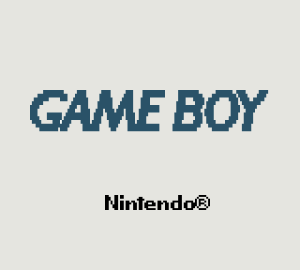More actions
No edit summary |
No edit summary |
||
| (2 intermediate revisions by the same user not shown) | |||
| Line 7: | Line 7: | ||
|type=Music Apps | |type=Music Apps | ||
|version=16K | |version=16K | ||
|license=Mixed | |||
|format=CGB | |format=CGB | ||
|download=https://dlhb.gamebrew.org/gbhomebrews/gbrhythmbox.7z?k33p0fil35 | |||
|download=https://dlhb.gamebrew.org/gbhomebrews/ | |||
|website=http://mydocuments.g2.xrea.com/index.html | |website=http://mydocuments.g2.xrea.com/index.html | ||
}} | }} | ||
{{#seo: | {{#seo: | ||
| Line 69: | Line 67: | ||
==Compatibility== | ==Compatibility== | ||
Recommended using KiGB emulator for the best experience. | |||
TGB emulator does not handle it well. | TGB emulator does not handle it well. | ||
Latest revision as of 04:55, 4 February 2024
| GameBoy Rhythm Box | |
|---|---|
 | |
| General | |
| Author | Leaf |
| Type | Music Apps |
| Version | 16K |
| License | Mixed |
| System | CGB |
| Last Updated | 2009/12/18 |
| Links | |
| Download | |
| Website | |
A sample drum kit for experimenting different sample rates.
Each sound is played with the D-Pad and the 4 buttons.
User guide
Format for the Rhythm Box:
- 4096Hz
- 2data/1byte
- Align data to 16 bytes
- If the end data of the 16-byte block is $00, it's considered the end of the rhythm sequence.
- The end data is represented by $00. So, any data that is originally $00 will be replaced with $01.
The playback routine involves calling the playback process every 1/4096 second using a timer interrupt. Each playback process differs based on the channel, which determines how the sound is produced.
Unfortunately, sounds with high frequency components like cymbals are too challenging to reproduce at low sampling rates. Even on the actual Game Boy hardware, certain channels may sound quite different between the Game Boy Color (GBC) and the Game Boy Advance SP (GBASP), for example.
The only common element that consistently produces sound across both platforms is the waveform memory channel.
Additionally, the behavior of emulators varies significantly depending on the specific emulator you are using. Certain emulators may handle sounds better than others.
pcm_16K
This is an alternative version with the sampling rate increased to 16,384Hz, which has a higher rate than LSDj.
Despite the sound output from Ch.D still being poor, the square wave channel seems to be performing quite well, particularly for cymbals and similar sounds.
The issue with sounds ending abruptly is due to the original WAV file's content.
Running at 16384Hz can lead to significantly larger file sizes, making it difficult to use in projects that require efficient memory usage and speed. However, the results show promising possibilities.
For Ch.C, since it's limited to sample playback, handling interrupts at a rate of (playback rate) ÷ 32 seems quite manageable and convenient.
Controls
Up - Hi-Tom (Ch.B)
Left - Low-Tom (Ch.B)
Right - Hand Clap (Ch.C)
Down - Bass Drum (Ch.D)
A - Cymbal (Ch.A)
B 0 Snare Drum (Ch.C)
Start - Orchestra Hit (Ch.D)
Select - Cuica (Ch.C)
Compatibility
Recommended using KiGB emulator for the best experience.
TGB emulator does not handle it well.
External links
- Author's website - http://mydocuments.g2.xrea.com/index.html
